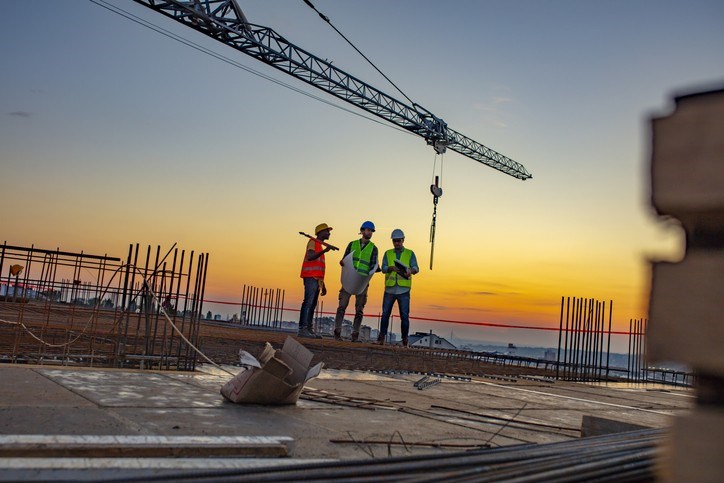B.C. Premier John Horgan acknowledged the National Day of Mourning for the 140 workers killed and many others injured in the workplace last year across the province.
And in doing so on April 28 he also acknowledged a new workplace safety threat: COVID-19.
"During the COVID-19 pandemic, workplace safety has taken on new meaning and new urgency. Essential workers are demonstrating great courage and dedication simply by doing their jobs during this challenging time," said Horgan in a statement.
But how exactly may occupational health and safety regulations be altered to accommodate COVID-19?
For now, no changes to existing regulations appear imminent, said Tom Brocklehurst, director of regulatory practices at WorkSafeBC.
"We're only a couple months into this. But we do have regulations that regulate exposure to biological agents," he said. "We have regulations on hygiene and hand washing, and there is an overarching obligation on employers to ensure the health and safety of their workers generally-so that framework is there."
To date in B.C., unlike in many other jurisdictions, no worker has died as a result of COVID-19 exposure, and while frontline healthcare workers have contracted the disease, it's still yet clear if they have any permanent injuries.
Brocklehurst said specific COVID-19 occupational health and safety regulations are not inconceivable.
"Maybe if we have a new normal around this thing, then absolutely we'll look at that," he said.
Brocklehurst said it's too early to say if workplace testing will be a common policy tool in the future. There are many hurdles, such as personal privacy, false positives and potential for discrimination.
For now, existing occupational health and safety policies are guiding and complementing public health orders and advisory notices, he said.
Construction, added Brocklehurst, is among the most dangerous industries for workers.
As the industry was never completely shut down, it provides a backdrop for how workplace safety regulations are affected by COVID-19 and vice versa.
B.C.'s existing occupational health and safety guidelines point to the need for an "adequate" number of portable toilets and hand-washing stations on work sites. And facilities must be clean and well maintained, according to the rules.
In other words, the guidelines are subjective and so far, there is no specific number of toilets or hand washing stations required for a workforce and/or site of any given size.
"What was adequate two months ago falls well short of what is adequate in the current environment," said Brocklehurst. "So, we really are looking at having workers being able to access places where they can wash their hands or get sanitizer perhaps a lot more than in the past. We don't have a specific number but it's certainly something we're mindful of and something we want employers to be very diligent about."
But construction employers to date have faced challenges, or failed, to ensure physical distancing and hygienic requirements on site.
Brocklehurst said construction-site inspections have been augmented and a key focus is hygienic standards.
"It's certainly our approach now to check in on hygiene and hand washing to ensure those facilities are available," he said.
So far the industry has had to adapt, adding to its list of worries. It's also an industry that has been given the opportunity to "prove itself," said Chris Atchison, president of the B.C. Construction Association.
"In a three week period, we had to go from a physical safety to a hygienic safety" focus, he said.
Instead of prescriptive guidelines, Atchison said sites are left to adapt to public health guidelines under the existing WorkSafeBC policies.
"What works for one work site might not work for another," he said.
So, physical distancing measures, such as one-way staircases for workers and staggered shifts, fall under existing WorkSafeBC policies to keep employees safe. But they may be implemented differently across sites, leaving it to inspectors to judge what is adequate.
Brocklehurst said in instances when physical distancing cannot occur, inspectors will assess if other measures have mitigated risk, such as the proper use of personal protective equipment.
The BC Construction Safety Alliance, said Atchison, has provided a framework for COVID-19 safety on sites.
Common worker habits such as spitting and sharing tools are now outlawed.
Andrew Mercier, executive director of BC Building Trades Council, said he'd like to see more permanent enforcement of health and safety on sites.
"WorkSafeBC has strong regulations for sanitation. Those regulations haven't been enforced," he said.
"If no one is sent to look at the site to ensure it's adequate, it will be inadequate.
"Increased focus on sanitation and health and safety should not be temporary ... and if there is a legacy, it should be on an increase to sanitation and health and safety on work sites."
Brocklehurst said it is too early to tell if his organization will require any more resources for site inspections.
However, WorkSafeBC is also seeing greater need for inspections at workplaces Brocklehurst would typically not be overly concerned about, such as retail outlets, for example.
"In the current environment, we are going to places that aren't typical for us, simply to check in because they are doing business in a different way; there are different risks for workers at these workplaces that aren't typical or haven't occurred in the past, so we are having to shift around a bit to get to places where we wouldn't have gone to in the past," he said.
Will this mean a larger inspection team?
"It depends on where the economy goes and where efforts are best prioritized. It remains to be seen," said Brocklehurst.
"If you look at oil and gas, is that going to continue to be an area of focus for us or will that industry be down and cooled for the next little while? We simply don't know."




